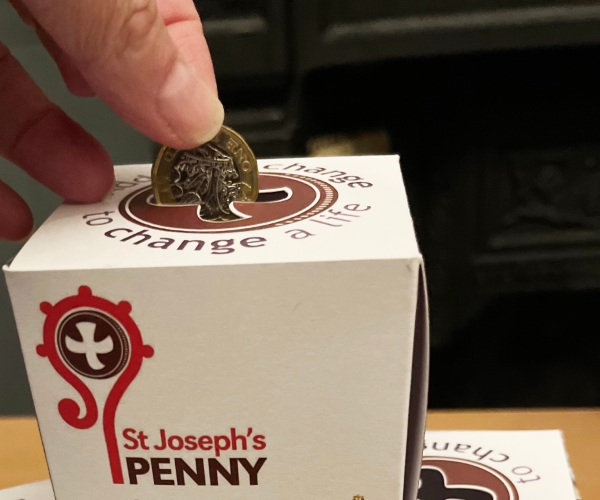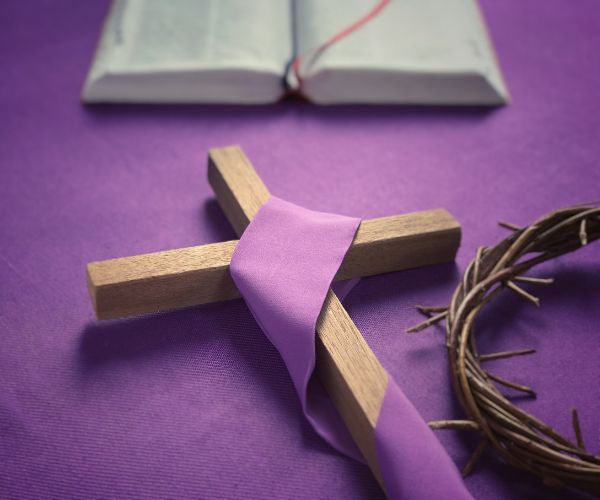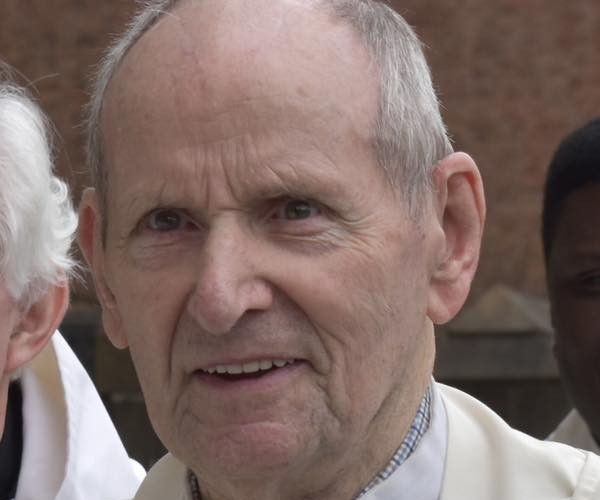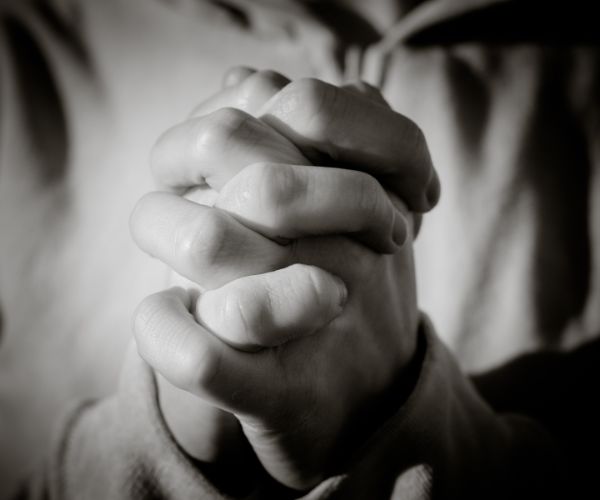
Prison Chaplaincy: A Light in the Darkness
Sunday 13th October 2024“The deepest things I found in priesthood, I found in prison. It was an absolute joy, the most joyous thing and the best part of my priestly life. It is Christianity at its rawest and most glorious.”
Today, we mark Prisoners Sunday by catching up with diocesan priest and former prison chaplain, Fr Ged Barry, on his 12 years of service in high security prisons across the North of England.
“It utterly baffles me what people think priests do and don’t do”, Fr Ged began, “because most people only see you in the context of going to Mass on a Sunday.
“When I was a prison chaplain, the wife of one of the governors thought it was a scandal that a priest was working full-time in prison, and not a parish, when there’s a shortage of priests. But this was my parish – and these were my parishioners. I remember saying that scripture tells us to go and visit prisoners, but it doesn’t really mention running parishes.”
Fr Ged’s ministry in the prison service formed its roots in the earliest days of his vocation, whilst studying for the priesthood at Oscott College. His experience with prisoners during his studies developed further as a young curate, when he would go and celebrate Mass at a nearby prison, but it was his first experience in parish life that gave him a clear calling to this particular service.
He said: “I was parish priest at St John the Baptist’s in Rochdale and over a six-year period, I was burying so many young people from unnecessary deaths. I buried 35 – not all, but mostly – young men under the age of 35. And I don’t mean people who died from cancer or some sort of accident. I was burying people – many of whom had come out of prison, often on drugs, with nowhere to go.”
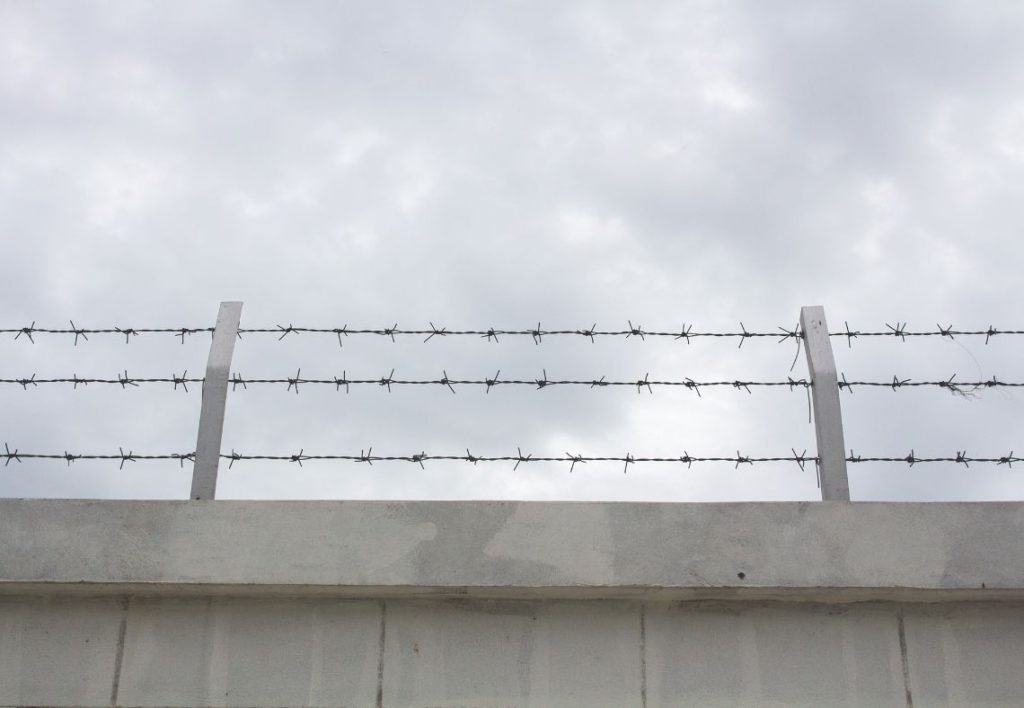
It was around this time that an opportunity arose within prison chaplaincy and Fr Ged soon found himself at the start of a three-year role at HMP Durham – a local and high security prison, as well as the only and last women’s high security prison.
He said: “I wanted to find some way to help reduce the number of people who were dying so often, so unnecessarily. I wanted to try and help people be different.”
Fr Ged took on the statutory duties of a chaplain with a great eagerness; visiting the prisoners in healthcare every day, visiting those in the segregation unit every day, and prisoners when they’re first brought into prison.
“That can be quite traumatic,” Fr Ged explained, “they’re often rattling off drugs, not in a good way, or feeling dreadful.”
But it wasn’t just the day-to-day routine of these legal requirements that made an impact; through a genuine sense of compassion, understanding, and true vocation, Fr Ged – in his role as a prison chaplain – was able to offer something rare and precious: the hope we find in our Christian faith.
He said: “Our job is to bring humanity into people’s lives. It’s not about judging them – they’ve already been sentenced – priests are there to be shining lights in times of darkness.”
After a pause, he continued: “The one thing you have in prison, the one thing you’ve kept – given a prisoner has lost their home, lost their job, lost their name, even, as they just become a number – the one thing they have left is their right to religious self-definition and our job is to bring Christ into their lives.”
The Door to Forgiveness
In addition to the daily duties of a prison chaplain, Fr Ged embraced a range of opportunities to do just that, celebrating Mass, setting up Bible study groups and meditation sessions, liaising with family members, supporting staff, writing reports, and more, but it was in the face-to-face interactions that brought the best – but also the hardest – aspects of prison chaplaincy.
“One of the most difficult things,” Fr Ged explained, “was that it was your job to tell a prisoner when a family member had died. There’s no training for that – having to tell someone that their loved one had died and then put them back behind a locked door. It’s just dreadful.
Fr Ged continued to reflect on the many sadnesses of prison life; the deaths and suicides of fellow prisoners, mental health battles, drugs problems, and delayed grief:
“Quite often, people who came into prison would suddenly go into grief about people who had died years ago but they’d drugged themselves to the point of hiding that grief. It was only when they came off the drugs and their emotions started to come back that they really began to mourn those they’d lost.”
As such, bereavement counselling became a major part of Fr Ged’s work with the prisoners but that listening ear and offer of accompaniment opened the door to that sense of hope.
Fr Ged explained: “With prisoners, there’s sometimes a bit of humour, but also a sense of loss about them, and a wish to be listened to, and to be seen – and sometimes what people don’t understand is that a priest can bring forgiveness.”
He continued to tell the story of a young man in his 20s involved in gang crime, who approached Fr Ged one day with a question of whether or not forgiveness was possible. His answer was clear: “Yes. Everything is possible. Forgiveness is always possible.”
Over time, Fr Ged got to know the prisoner more and more, learning that his girlfriend had been pregnant when he was sentenced and had given birth to a son, who she wanted to be baptised Catholic. Intrigued to learn more about the faith, the young man asked Fr Ged if he could come to chapel and, in time, also decided to become Catholic.
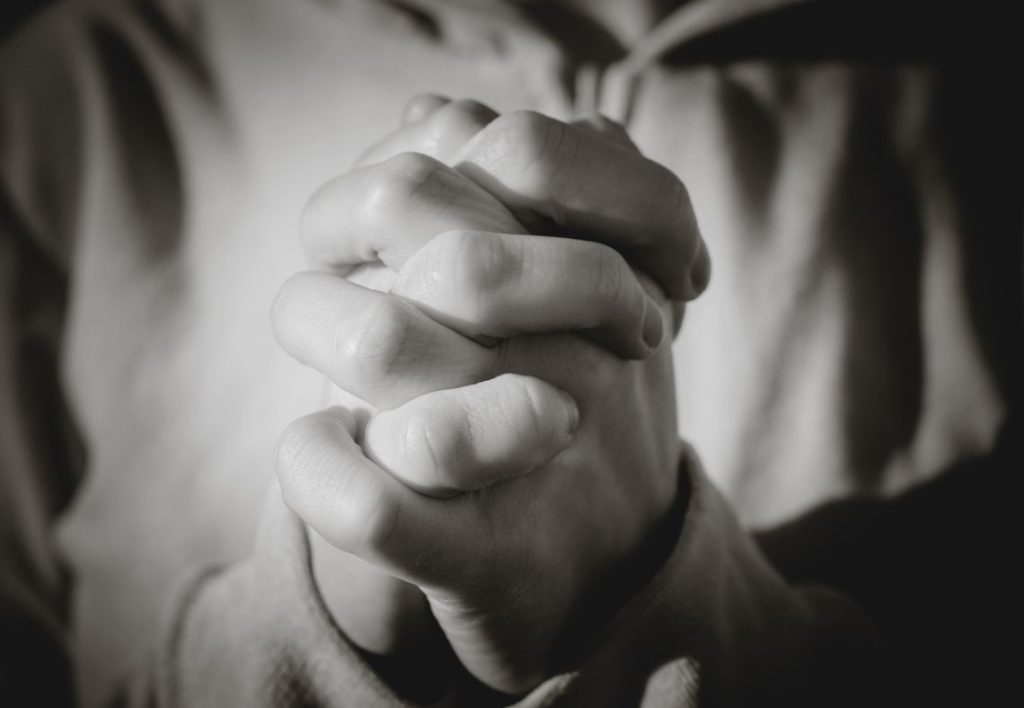
Fr Ged said: “What was remarkable was the total change in his behaviour. This idea of forgiveness moved him – he’d changed completely – and people began to notice and wanted to reward that behaviour.”
This reward resulted in an unprecedented event in the life of the prison; the young man’s family was permitted to come to the prison chapel for the baptism of his son.
Fr Ged said: “He came to me after and told me that this was the greatest day he’d had since he’d gone into prison. Since then, he’s the only member of that gang that’s moved on in his sentence; he’s had his category reduced, gone into lower category prisons – to the point he’s now in a prison where he can kick a ball around with his son when he visits.
“I often think back to that and remember when St Peter was in prison, in chains and he didn’t know what was going to happen, and it says: “in the cell, a light shone.” And that’s the role of a chaplain: you give hope.”
The importance of religious provision in prison is not something to be underestimated, with a staggering proportion of prisoners clinging to, returning to, or converting to some faith association that opens to door to understanding, repentance, and even reform.
A Gift and Blessing
When beginning his nine-year role at HMP Full Sutton – a high security prison where most men serve long or life sentences – Fr Ged’s first task was to look up and meet prisoners, and he soon came to the realisation that the existing provision was not sufficient for the needs of the prisoners. He requested and was granted an extra service a week, resulting in a number of conversions and 70% of main wing prisoners regularly attending Mass – with more for special occasions.
Fr Ged continued: “Does faith work? Yes. There are guys who were undeniably changed and some I know who got out of prison and still go to church now when they weren’t Catholics before. I don’t think we give enough credit to the faith that we possess.”
The profound power of faith is a beautiful gift in the hands of our priests, who are called to bring people closer to Christ in the joys, sufferings of everyday life. Whether that is from the pulpit of the parish church, by the side of hospital bed, or in the wings of a high security prison, Fr Ged’s advice to new priests, seminarians, and discerners alike is to focus on the destination, not the journey.
He said: “What I’d say to anyone in the priesthood is that you have no idea where you’ll end up. Something I often say is that when people don’t think their prayers have been answered, what’s usually happened is that they’ve given up too soon. You know when you’re going somewhere, and you think you know the route better than somebody else? It’s like that. When we pray, sometimes we give up because the route isn’t what we thought it was going to be, but it’s the destination we’ve prayed for. The priesthood is like that. Don’t map it out. It is a wonder.
“The priesthood is joy and being a prison chaplain was a gift from God, an unexpected blessing. And that blessing has set me up for the dark nights.”
Do you have a vocation?
Is the Lord calling you to the priesthood or permanent diaconate? Would you like to find out more about vocations in our diocese or speak to our team? Find out more on our Vocations page.
Tagged | Vocations

